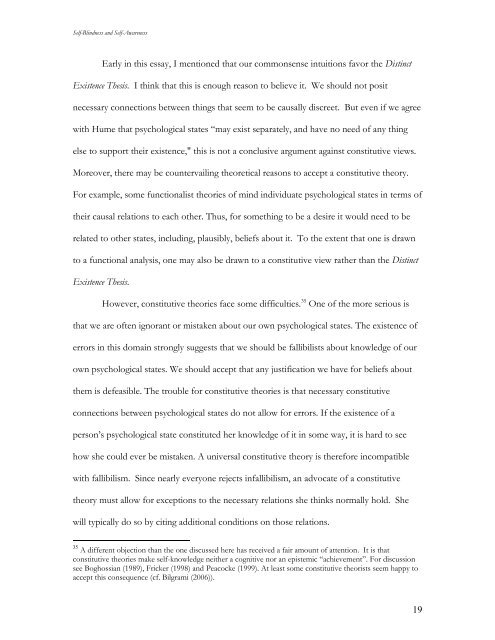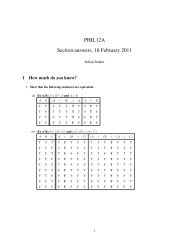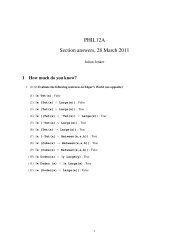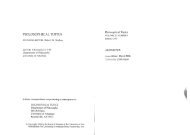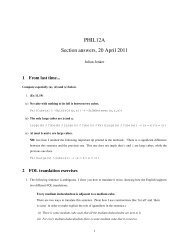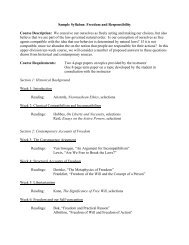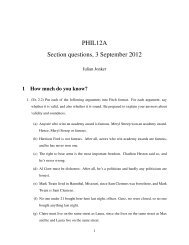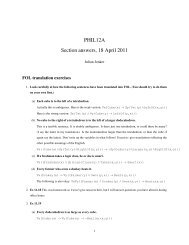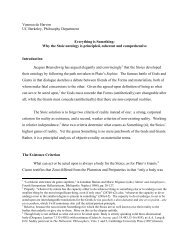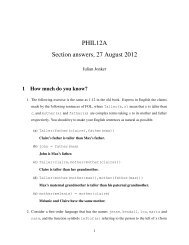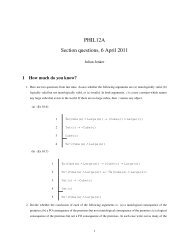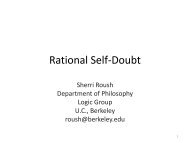SELF-BLINDNESS AND SELF-AWARENESS - Philosophy
SELF-BLINDNESS AND SELF-AWARENESS - Philosophy
SELF-BLINDNESS AND SELF-AWARENESS - Philosophy
You also want an ePaper? Increase the reach of your titles
YUMPU automatically turns print PDFs into web optimized ePapers that Google loves.
Self-Blindness and Self-AwarenessEarly in this essay, I mentioned that our commonsense intuitions favor the DistinctExistence Thesis. I think that this is enough reason to believe it. We should not positnecessary connections between things that seem to be causally discreet. But even if we agreewith Hume that psychological states “may exist separately, and have no need of any thingelse to support their existence," this is not a conclusive argument against constitutive views.Moreover, there may be countervailing theoretical reasons to accept a constitutive theory.For example, some functionalist theories of mind individuate psychological states in terms oftheir causal relations to each other. Thus, for something to be a desire it would need to berelated to other states, including, plausibly, beliefs about it. To the extent that one is drawnto a functional analysis, one may also be drawn to a constitutive view rather than the DistinctExistence Thesis.However, constitutive theories face some difficulties. 35 One of the more serious isthat we are often ignorant or mistaken about our own psychological states. The existence oferrors in this domain strongly suggests that we should be fallibilists about knowledge of ourown psychological states. We should accept that any justification we have for beliefs aboutthem is defeasible. The trouble for constitutive theories is that necessary constitutiveconnections between psychological states do not allow for errors. If the existence of aperson’s psychological state constituted her knowledge of it in some way, it is hard to seehow she could ever be mistaken. A universal constitutive theory is therefore incompatiblewith fallibilism. Since nearly everyone rejects infallibilism, an advocate of a constitutivetheory must allow for exceptions to the necessary relations she thinks normally hold. Shewill typically do so by citing additional conditions on those relations.35 A different objection than the one discussed here has received a fair amount of attention. It is thatconstitutive theories make self-knowledge neither a cognitive nor an epistemic “achievement”. For discussionsee Boghossian (1989), Fricker (1998) and Peacocke (1999). At least some constitutive theorists seem happy toaccept this consequence (cf. Bilgrami (2006)).19


